When I first wrote about The Owl House it was a simplified article mostly trying to grapple with one of those great trends of the Online Age. That is, a show came out, and it was enjoyed, and then it got stamped with the Good Representation Label because it was Diverse and I, eternally cynical, went to check that out… and once I had confirmed this wasn’t people being very excited about things that we’re pretty sure this counts, I was overwhelmed with the sudden ennui that it’s 2020 and we finally got an uncomplicated yes-actually-these-characters-are-gay moment from a Disney show.
That was all I was comfortable talking about, and that’s all I did, because The Owl House as a show was, at the point I watched it, teetering on an edge.
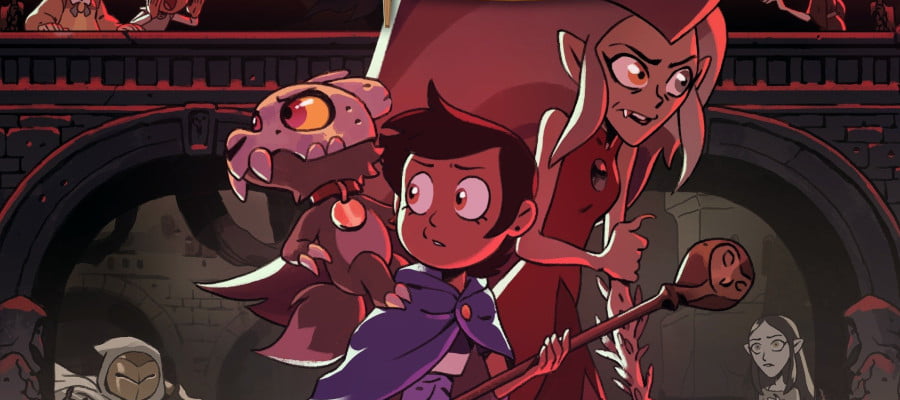
See, if you had the Disney Channel, a cable channel, the second season was available to watch back in June 2021. But if you were like me, in Australia, it wasn’t going to come to Disney+ until April 2022. That meant that while you or your best friend or the tumblrphones may know how the narrative of The Owl House spun out, and whether or not it was a story full of promise that bombed out hard because the people making it weren’t given time or space or opportunity to do a good job, or it wound up being another of these amazing animated series we’re getting these days.
But now I have seen it, and y’know what? The Owl House kicks ass.
Spoiler Warning: No gloves, no promises, I’m going to talk about things in this series and I don’t care about footing around it. This is going to be an article about a series I like and a bunch of the stuff in it I like and I’m not going to avoid spoilers. Have you watched The Owl House? No? Well, you should go watch it! It’s great!
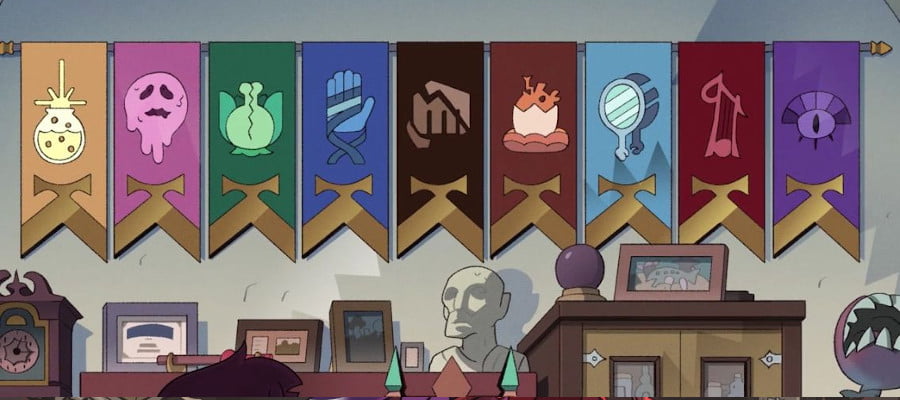
In a glib sense, the setting of The Owl House has the energy of the kinds of nerds that watched a lot of Harry Potter growing up and at some point realised that setting’s magic system was really stupid, and pretty much built around bad ideas. Oh, it doesn’t name names (except when they point out how much Quidditch sucks, which it does), but the magic system presented in The Owl House is some excellent world building.
See, you want to include structures. You want to make sure that when someone learns about a world, there are identifiable organisations and systems in place to make it possible for them to understand the world as presented to them. You can have knightly orders or school houses or categories of superhero or villain groups or whatever, but the point is, that some kind of organising principle sets the world up in a way that readers can understand. That’s why these classification systems are so popular, why people get merchandise about what ‘their’ colour of light saber or ‘their’ house would be, obviously.
In The Owl House‘s setting, there are ten covens, each of which express not a scientific philosophy, but really, a mode of action. Each of the covens (Abomination, Bard, Beast Keeping, Construction, Healing, Illusion, Oracle, Plant, Potions and the Emperor’s Coven) tell the audience not what you can do, but more importantly, how you do the thing you do. I’m sure an in-depth examination of these, in a RPG sourcebook way, would have a lot to say about what you could or couldn’t do with each category. Like there’s almost certainly some Healing magic tricks that let you do really dangerous stuff, right? It’s intuitively obvious that the covens have some flexibility in how they do things when they include categories like ‘you can make potions.’
Once that’s the established order, though, the entire series repeatedly underscores that this coven system is a way to organise ideas, it’s not the way the magic works. It’s an organisation made and imposed by a person, and it brings its own ideology and has its own problems and it shows what magic outside of that system looks without making it like, alien wizards or faeries or something.
That means you have a hook for characters that want the hook, but also you have a catch-all space for people that don’t fit the hook. There are also demons as a source for power, and Palismen (more on those later). That’s great! A character can exist in this space, and get to do Cool Things, but there are lots of ways they can be, but those things still exist in broad categories that let you explain to others what a character is about in a really broad way.
You know, like if you wanted to make this world great for making OCs.
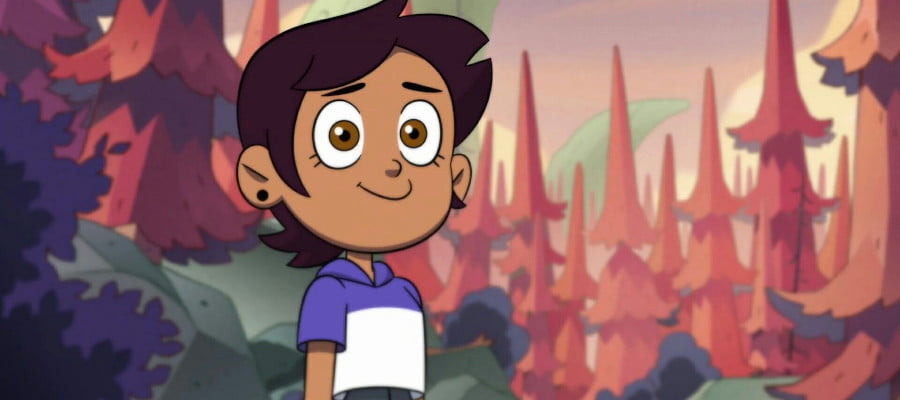
Speaking of An OC, check out Luz! First things first, there’s a layer on which Luz ‘works’ that’s really non-obvious. I don’t think I’m an expert on being say, a queer unmedicated ADHD teenager in 2010 but the vibe I get from Luz and how people react to her is that her attitude and ability to focus look a lot like a neurodivergent kid who is in what therapists and the like to refer to as ‘a trying situation.’
There’s basically this problem where you can be presented with a kid whose life situation puts pressure on them that makes them behave in ways that are, let’s say, non-standard? But sometimes those things can be just circumstantial, or they can be entirely based around neurodivergence, or they can be about the neurodivergence that is emphasised by the circumstances. And that’s our opening pitch; that Luz, in introduction, is a girl who’s going to a school environment that doesn’t work for her because she’s vividly focused on a fantasy world.
Thing is, when she gets to a fantasy world, she then focuses on her studies to a degree that worries the people around her. Almost like she’s got some kind of hyperfocus situation going on.
Anyway Luz is great! She’s socially inept but her way of handling that social ineptitude is to advance, rather than retreat. She ignores meanspirited people, even when she understands that that’s what’s happening to her, which still meshes with a kind of neurodivergence, and yet still makes space for the whole story to repeatedly tell stories about ‘here’s how the tension of this episode was predicated on a reasonable misunderstanding, and here’s how we resolve it by communicating with someone.’ That’s great! That’s the kind of thing I like to see in a story, even if I am occasionally also invested in stories demonstrating the importance of the willingness to do violence against sources of injustice.
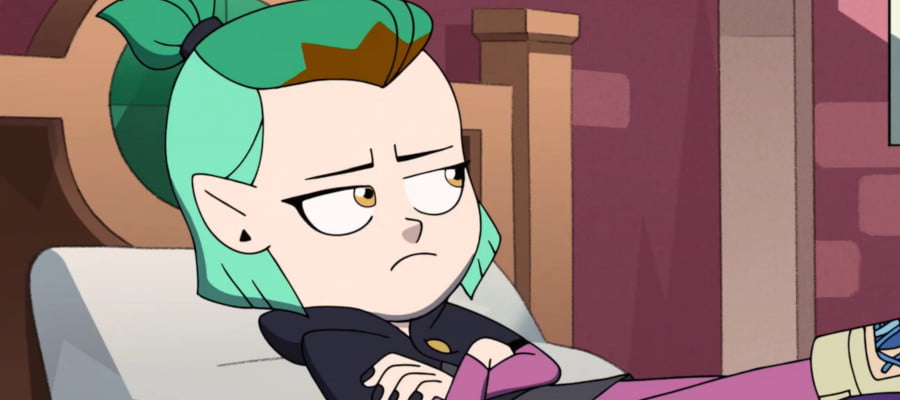
Oh hi, Amity, what are you doing here at that convenient segue?
I’m not going to pretend I haven’t been somewhat burned by Steven Universe, a series that I dislike for a variety of modest reasons, all of which are perfectly fair but you don’t need to worry about them. But one of the things I was worried about low-key was the idea that a character would be introduced to be a The Girlfriend and the fact the character was gay was enough that it meant the way someone might find a character unpleasant was instead covered under memes of ‘she’s flawless and can do no wrong.’
I was genuinely worried that I was going to dislike Amity, who was going to be introduced as The Actually Gays and that we were going to be kinda done with her, and ignore the way she behaved before she was a crush-or-more. I thought there was a chance that Amity would be a background element that didn’t follow up on the promise of the Grom or foregrounded in a way that tried to pretend she hadn’t been a rotten twerp.
Turns out, instead, The Owl House foregrounded Amity, gave her multiple episodes of character development, advanced her story through multiple different status quos and she’s kind of my favourite character in the whole show. There’s lots of little things – like, the way she gets more comfortable about expressions of affection with Luz, or the way she slowly unwraps herself from her original class dobber position.
I think the funny thing to me was when Amity changed her hairstyle and I went ‘aw, dang, I liked the other look better’ that made me realise I liked a look, I thought the other look was cool.
Plus they always stick with the way that Amity’s powers ‘should’ work; she casts Abomination magic, and that means when you see her doing magic, you see her doing magic with Abominations. And then you see her doing it in a variety of different ways but still doing it, and that means the story gets to show you a deep mastery of one discipline which plays back up into that world construction!
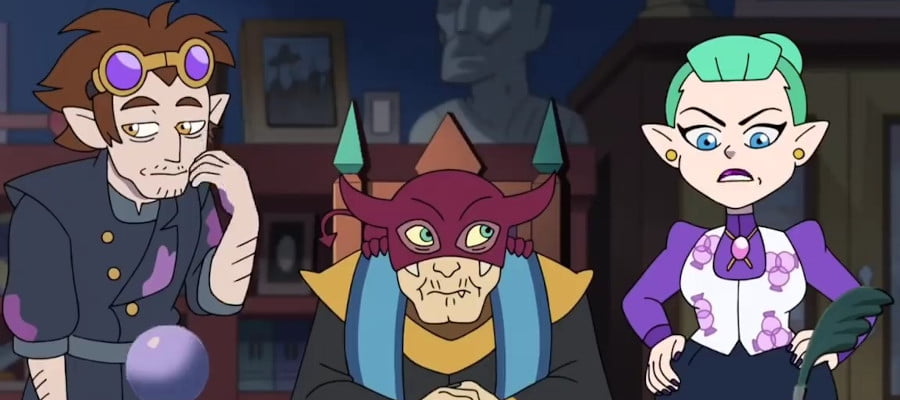
The Blights are important too! Like, you get to see the whole family and the pressures that create that family. The baseline set you get, of you know, two parents to put Amity under high pressure, two siblings who seemingly get away with anything, and then there’s the business around them that links them to the greater plot. And then each member of the family is explored in their own way, too, with the siblings revealed to be doing one of the most obvious things magical teenagers would do, which is, use magic for self-enrichment.
And then, when those teenagers are given a modest degree of latitude, when they’re trusted with some measure of respect, they have the room to grow as themselves. And that’s cool, because it also means that as Amity develops, her family develops around her, reacting to the things she’s chosen to do and the way she changes. That’s cool! Then we have the way the parents get to be a kind of contrasting pair of Too Much Attention and Not Enough Attention and the way those things can be reoriented!
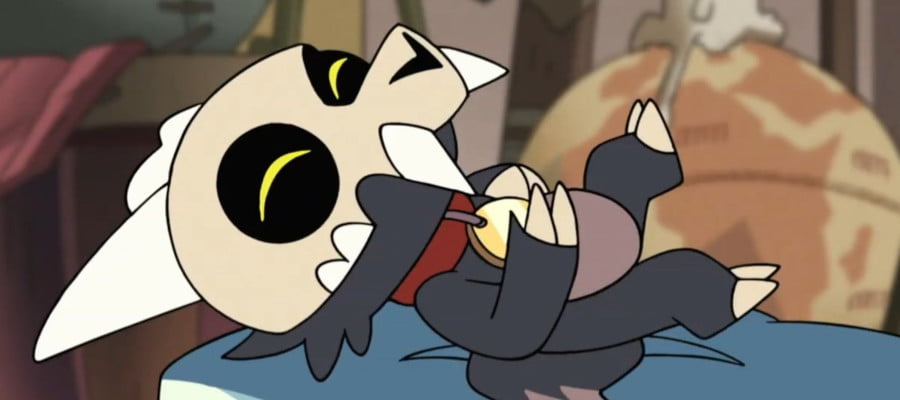
King, god, King, okay, so I love a lot of things about King to start with. He’s a funny little goblin man to start with, and he never really loses that. Sure, over time he has more serious moments and his attitude shifts to being more gentle and understanding, but King lines from the first episode are more or less like King lines in the last episode at least in how they try to get away with things.
I remarked originally that I loved King, because King was also a basic pitch-perfect set of jokes about a dog. And it’s true! That’s still there! Particularly the way he’s easily distracted, and the ways he’s prone to sleeping. But woven through that there’s this really sweet, heartfelt story that plays out in multiple stages that ask the question of who are you and the followup who do you choose to be?
It means King gets to do a bunch of things I love; he confronts his own worst self, he looks at his inner nature, he dissolves a lie that was his old life and yes, he has a big ole cry about it because that’s kind of what happens. Then he gets to learn about who he really is, what it means, and then, when presented with that kind of power… he gets to choose what it means to be who he is.
King’s so great, I love him so much. I love how much the things he does are about indulging a curiosity or a want, and while he’s afraid of being seen as weak or needy, he is needy, and fears being teased more than he fears being wrong. King’s a king.
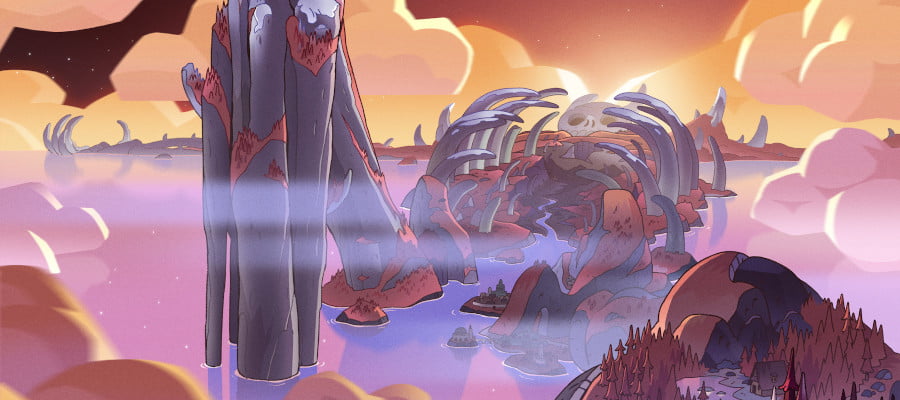
And that’s just getting started.
1 Trackback